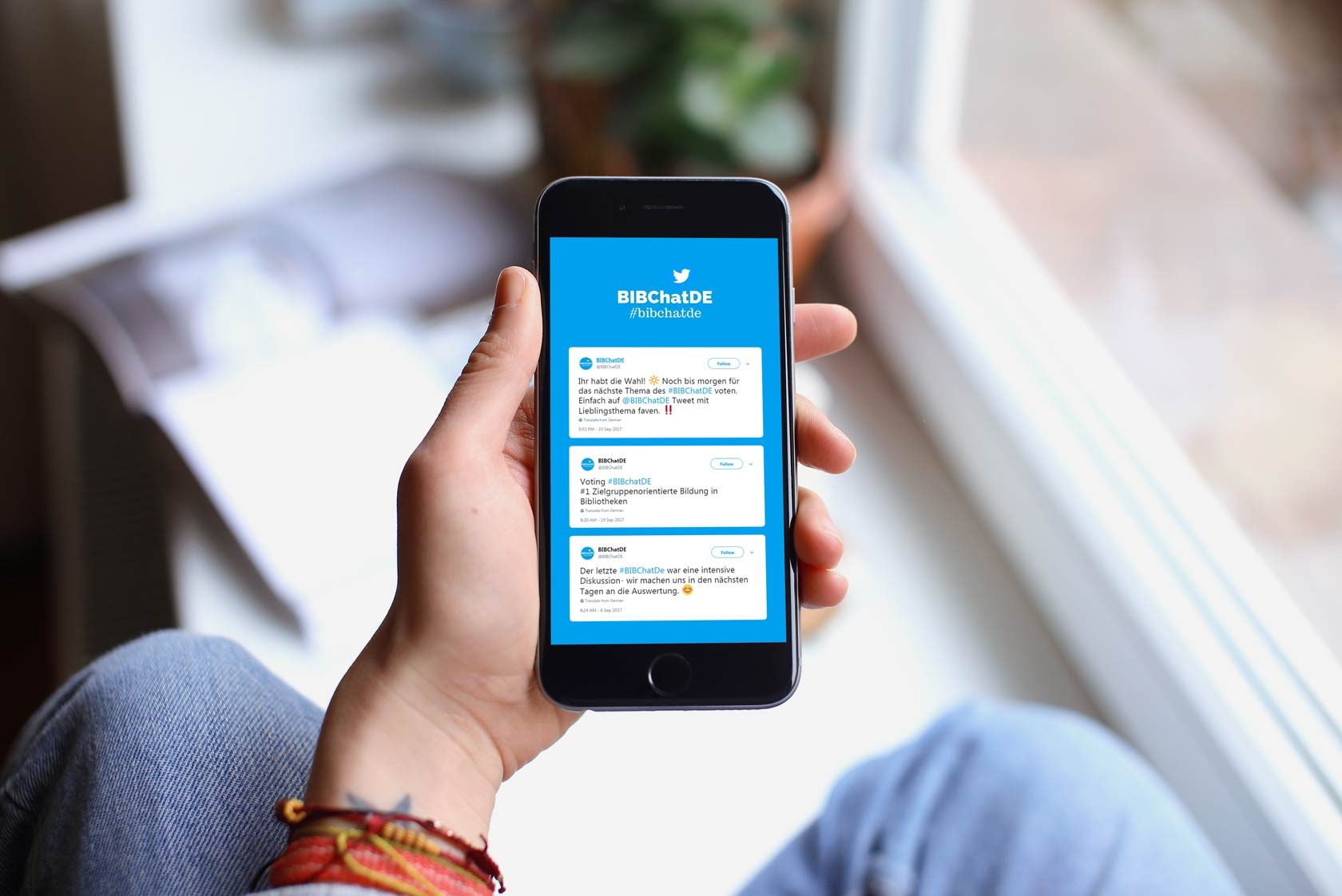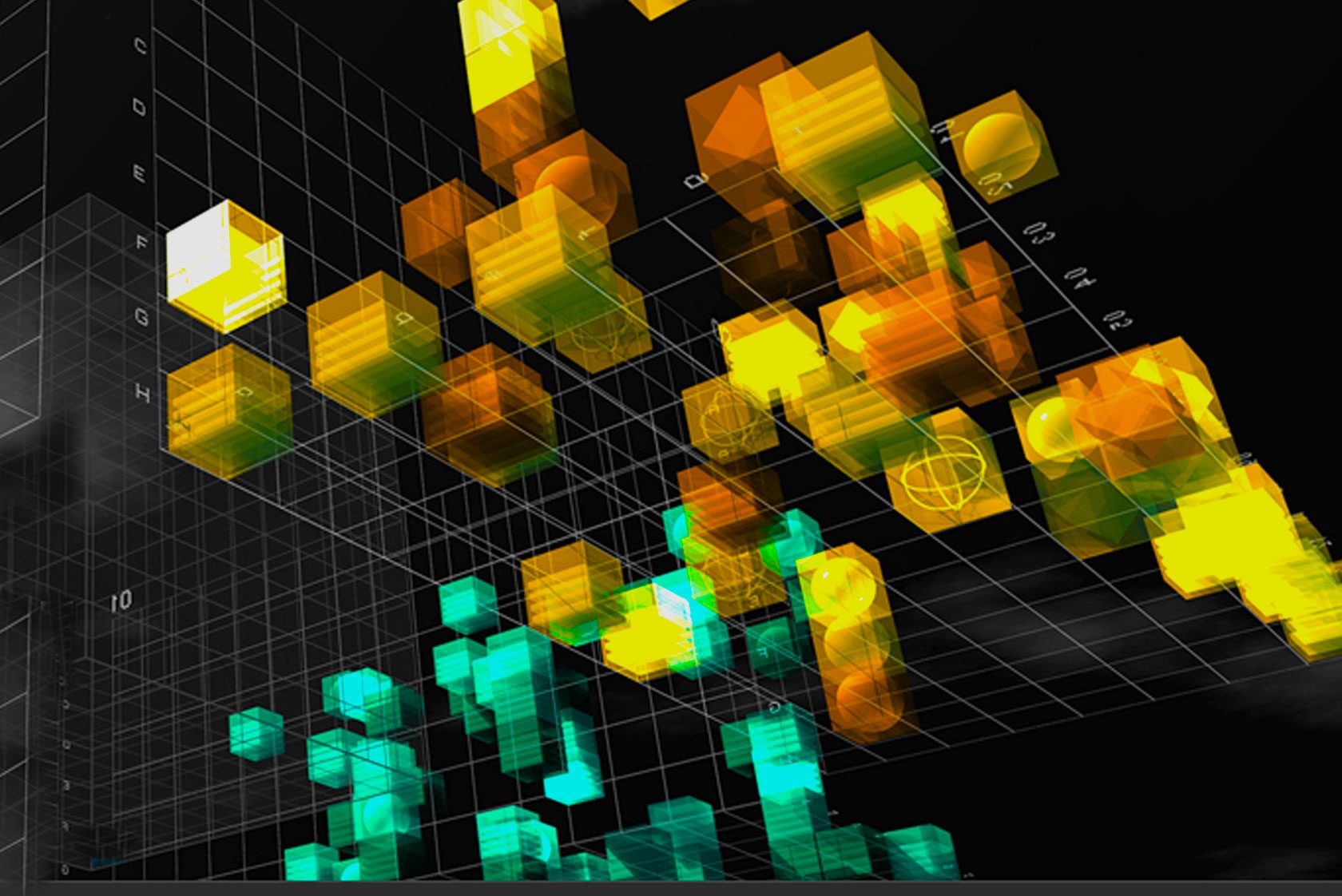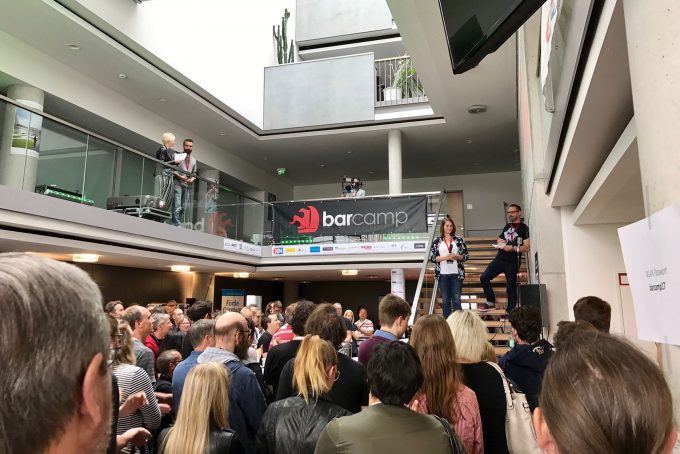
Bibchat: The Twitter Chat on Libraries
For some time now library related subjects are being discussed once a month on Twitter using the hashtag #BIBchatDE. The @bibchatde team explains what it is all about.
How does the Bibchat work?
On the first Monday of each month between 8:00 pm and 9:00 pm German time we, the team (link in German) behind the Twitter account @bibchatde (Follow @BibChatDE), host a discussion on Twitter with everyone who is interested in libraries. The discussion topics are being selected in a vote of the Twitter community. On bibchat.de (link in German) we introduce the selected subject prior to the live Bibchat. Thus, it is possible to prepare for the discussion, if one wants to. Each time two of us act as the facilitators of the evening. After a short introduction of the participants, the discussion begins. At @bibchatde we publish several questions in the course of the one hour. If one wants to answer question F1, this is done by beginning the tweet with “A1”. All tweets should contain the hashtag #BIBchatDE.
After each Bibchat the hosts compile a retrospect for the blog. Furthermore they prepare the discussion clearly arranged to reread it on Storify. All tweets containing the hashtag #BIBchatDE are recorded in the Bibchat archive.
How was the Bibchat developed?
From the idea through to implementation it took about one year. We were inspired by the #EDchatDE, a Twitter chat aiming at teaching staff. The first initiative for Bibchat was born during the Bibliothekskongress (Library Congress) in March 2016. In a Bibcamp session in Stuttgart it was formulated more precisely. The professional association Berufsverband Information Bibliothek (BIB) supported us with the technical implementation. In April 2017 the first Bibchat was ready to start.
What is the aim of the Bibchat?
With Bibchat we do not only want to intensify the direct interaction with colleagues, which is already done elsewhere. Our aim is to use Twitter’s wider coverage to raise the awareness of a broader public and to initiate discussions in the public on library subjects as well as on socially relevant topics that are interesting for libraries.
Another aspect is interdisciplinary networking and the development of supra-regional contacts. Twitter is not suitable for in-depth discussions of subjects. In fact we want to stimulate the debate and connect people with similar questions and interests.
What are our experiences?
The first Bibchat was aimed at intriguing a broad public and was started with a low threshold question: “Why do we still need libraries? We already have Google!” The subjects of the other chats were more specific: Change in libraries, networking in communities, library as a location, work 4.0 und social media.
There were between 50 and 100 Twitter users actively participating in each chat so far. The majority of them works in libraries but there were also participants with other professional backgrounds, including patrons who help us to understand their view on libraries. There were also library apprentices and students taking part in the discussion. We welcome this as thus another area for communication between young professionals and experienced professionals emerges.
What are our future plans?
When subjects beyond our expertise are selected, we plan to invite experienced experts to host the Bibchat for one evening. These could for instance be colleagues working in academic libraries or as well people working in other areas than libraries, who invite their own community to participate at the Bibchat.
The Bibchat is meant as a platform for discussions. Everyone is invited to participate and to introduce her or his perspective. That is why we welcome the participation of many people: Colleagues, patrons, cooperation partners, decision-makers and anyone who is interested in libraries.
The Bibchat was started off by Dirk Ehlen (Competence Centre for public libraries in North Rhine-Westphalia), Tanja Erdmenger (Lector at Munich Municipal Library), Marlene Neumann (Responsible for library development, quality management and digital media at Erlangen Municipal Library) and Stephan Schwering (Head of the central library of Düsseldorf Municipal Libraries).
View Comments

Putting Open Science Into Practice: ZBW Research Data Projects
Research data is a crucial issue in open science. The ZBW is involved in its...




